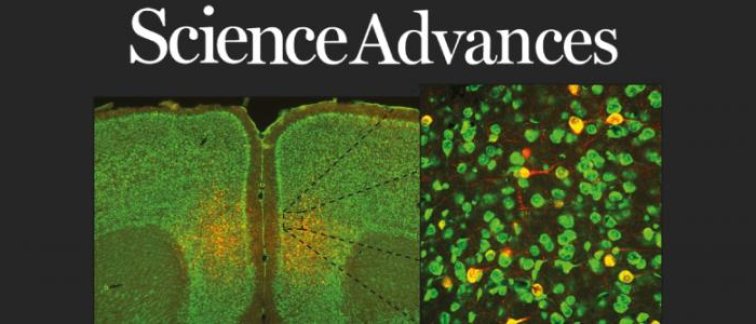Treatment of alcohol use disorder is hindered by relapse to alcohol drinking, which can occur even after years of abstinence. Relapse can be caused by environmental cues (such as bars or alcohol commercials) that trigger reactivation of alcohol memories, leading to intense feelings of craving and the urge to resume alcohol consumption. This study investigated in mice how long-term associations between alcohol and environmental cues are encoded in the brain. They found that a small group (~6%) of neurons in the medial prefrontal cortex (mPFC) is highly activated during alcohol consumption in the presence of a cue that signals the availability of alcohol. Using a genetic tagging technique called viral-TRAP, they were able to express a designer receptor (DREADD) into these activated neurons, allowing subsequent chemogenetic manipulation of their activity. By selectively inhibiting these specific cells, cue-evoked relapse to alcohol seeking after a long abstinence period was substantially reduced. Inhibition of a similar sized different subset of mPFC neurons did not affect relapse. Furthermore, the same mechanism did not generalize to a natural reward, such as sugar. Together, their data reveal that a small subset of neurons in the mPFC encodes an alcohol-cue memory, thereby functioning as a lasting memory trace. The discovery of this alcohol-cue memory trace enhances our understanding of the fundamental mechanisms of alcohol memory storage in the brain and may be an important lead for development of therapeutic therapy to treat relapse.
Access the publication in Science Advanced 'A persistent alcohol cue memory trace drives relapse to alcohol seeking after prolonged abstinence'.
Read more about the Memory Circuits team

